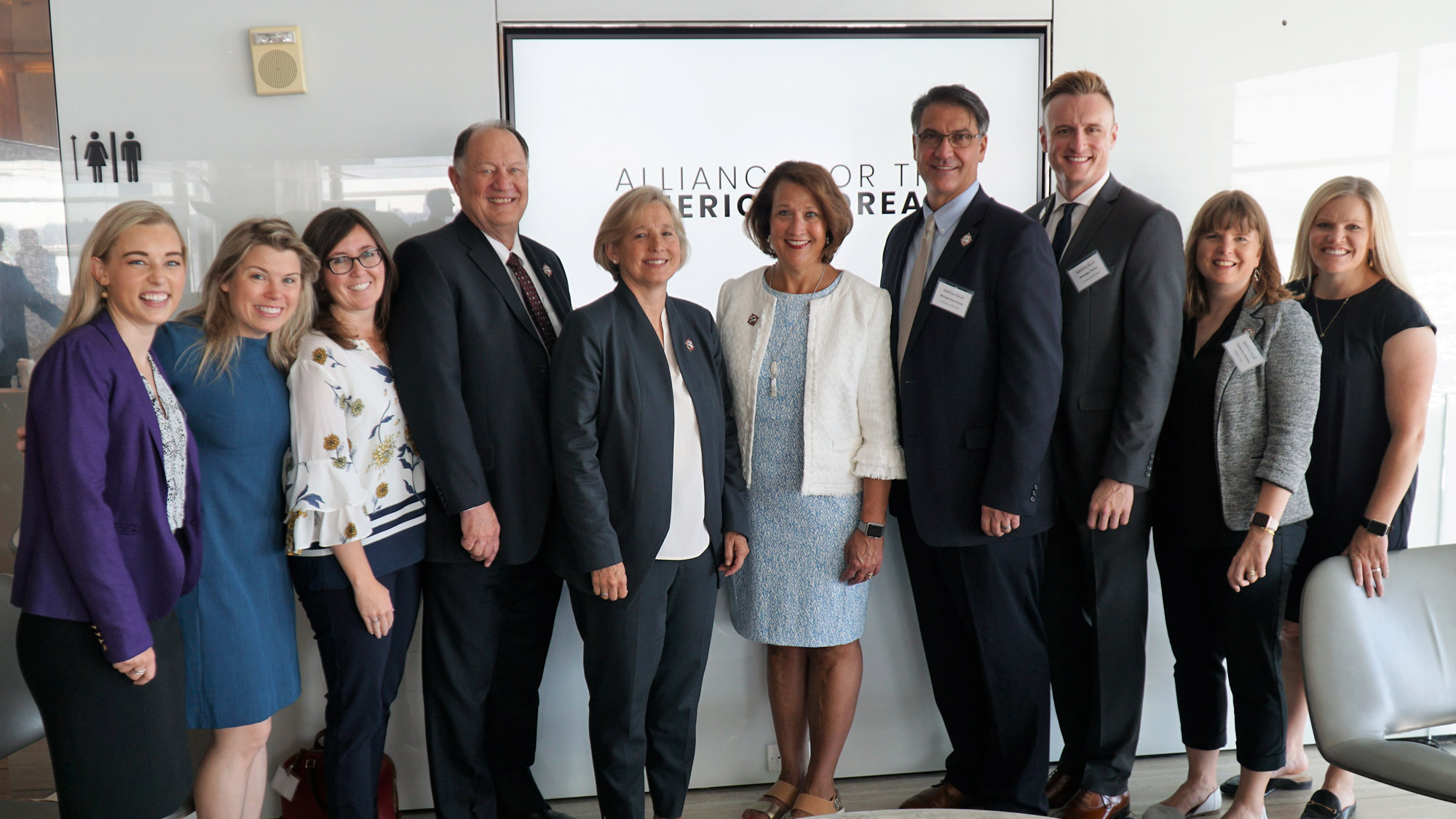News Release
Helping hard-hit rural counties
The Utah Coal Country Strike Team’s multi-pronged proposal to improve financial prosperity in Carbon and Emery counties received an additional $300,000 financial boost following its presentation to the Alliance for the American Dream in New York City on Thursday, June 26, 2019. To date, the project has received $900,000 in direct and matching funds from Schmidt Futures and the University of Utah.
“I am overwhelmed with gratitude,” said Mike Kourianos, Price City mayor and co-chair of the strike team. “This is a tremendous investment in our vision for Price and all of Utah coal country. This funding will help us diversify our economy, allow us to invest in infrastructure and give us a path toward a vibrant economic future.”
The funding, along with a $500,000 legislative appropriation, will enable the team to invest in workforce training, tourism infrastructure, housing revitalization and economic development planning in Carbon and Emery counties, according to Natalie Gochnour, one of the team’s co-chairs and director of the U’s Kem C. Gardner Policy Institute. She said the team plans to pursue additional funding from the U.S. Economic Development Administration, the Utah State Legislature and other private philanthropy.
“This project is attracting positive widespread attention from both public and private funding sources because of its high potential to transform lives, not only in the near term but over generations,” said Gochnour. “We are deeply appreciative to Schmidt Futures, our partners in the Utah State Legislature and our partners across Utah’s coal country.”
The team’s proposal was one of 150 ideas submitted from across Utah in August 2018 as part of the Alliance for the American Dream—an initiative funded and sponsored by Schmidt Futures.
The team’s plan targets four interventions to aid the economically distressed communities:
- Create a Silicon Slopes eastern hub to complement Utah’s rapidly expanding tech sector.
- Create a tourism infrastructure fund.
- Revitalize housing stock to increase wealth and create a more attractive community.
- Establish customized economic incentives to spur development in the counties.
Price is the largest city in Carbon County, Utah, which for decades thrived on a coal-based economy. While job growth across the state has increased by 17% since 2008, employment in Carbon and neighboring Emery County has declined by 16%. Utah’s coal country suffers from high unemployment, net out-migration and housing price depreciation.
As reliance on coal continues to decline, these two hard-hit counties, like counterparts across the country, are in desperate need of a strategy to revitalize their communities, according to Wes Curtis, an advisor on the project. “This project is about working to create partnerships and programs that will keep our children and grandchildren in our community,” he said.
The alliance is made of up four public universities that were selected by Schmidt Futures in April 2018. Alliance members include the University of Utah, Arizona State University, the University of Wisconsin-Madison and The Ohio State University. Each institution was challenged to develop technology and policy innovations aimed at raising net income for 10,000 middle-class families in their communities by 10% by the end of 2020.
Other ideas that were under consideration from alliance members also met the criteria of addressing a pressing social problem, with the potential to serve as a model in other states. Arizona State’s team crafted a plan to improve access to federal student financial aid. The Ohio State group had a proposal to aid first-time homebuyers. The University of Wisconsin-Madison had two ideas—one for a legal intervention program and the other focused on improving child care services.
“I think I can speak for my fellow presidents when I say we appreciate Schmidt Futures’ vision in bringing us together to strengthen the middle class in our respective states,” said U President Ruth V. Watkins. “Already our partnership is having dividends beyond this project, generating ideas for collaborations on critical issues in higher education.”
The university is accepting applications for the next round of funding for the 2019 challenge through Nov. 15, 2019. More information is available online here.






